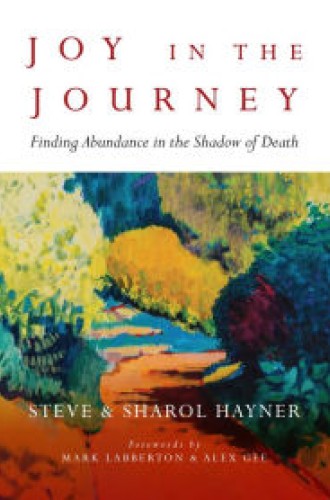Answers without questions
Three years ago, nine months before his 40th birthday, my husband Todd received one of those alarming you-need-to-see-the-doctor-now calls after a routine blood test. That urgent conversation with his doctor led to further tests, which showed that he had multiple myeloma, a chronic cancer that can often be pushed into remission but eventually proves fatal for many. At the time we had two children under the age of four. For the next nine months we conducted an intensive battle with the disease, spending countless hours in doctors’ offices and hospitals.
Because of our experience, the story of fellow cancer couple Steve and Sharol Hayner piqued my interest. At the time of his diagnosis with pancreatic cancer, Steve served as president of Columbia Seminary. Previously he had been the president of InterVarsity Christian Fellowship and had worked in a variety of pastoral and academic positions across the United States. His wife Sharol worked alongside him in his various ministries, as well as using her own gifts in children’s music. Until Steve’s illness the Hayners had lived the life of an active older Christian couple, successful and well loved in their chosen careers, and Steve was particularly known for his joyful outlook. Together they had lived into their sixties and had enjoyed the gift of multiple children and grandchildren. A good life.
Partly because of this starting point, the book evoked conflicting feelings in me. The first sentence of the preface reads: “What follows is a journey of two people who never imagined that in their sixties they would face what they thought would be reserved for their eighties or nineties.” Tell me about it, I thought. Except take it back another 20 or 30 years. Without meaning to, I found myself taking on the role of Job’s Adversary, speculating about how the Hayners might have responded if, God forbid, cancer had struck one of their children or grandchildren. Would their journey still have been so joyous?






